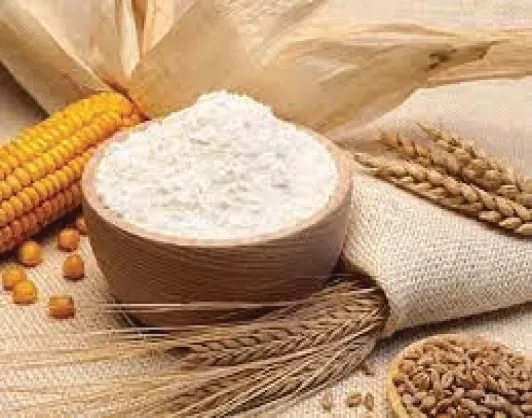
Flour Mill Management
Software designed for flour mill management should address the various facets of flour production, from grain handling to final product distribution. Here are key features that should be included in flour mill management software:
1. Production Management
Milling Process Control: Manage and optimize the milling process, including grinding, sifting, and blending of wheat or other grains.
Batch Management: Track and manage production batches, including raw material input, milling processes, and finished product output.
Recipe and Formulation Management: Define and manage flour recipes and formulations, including ingredient ratios and specifications.
2. Inventory Management
Raw Material Inventory: Track and manage inventory levels of raw materials such as wheat, additives, and other milling ingredients.
Finished Goods Inventory: Manage inventory of flour products, including different types and grades of flour.
Warehouse Management: Organize and manage storage locations for raw materials, semi-finished products, and finished goods across multiple warehouses.
Barcode/RFID Integration: Utilize barcode or RFID technology for efficient tracking of inventory and minimizing errors.
3. Quality Control
Incoming Material Inspection: Inspect and test incoming raw materials to ensure they meet quality and specification standards before milling.
In-Process Quality Control: Monitor and control quality during the milling process, including particle size, moisture content, and purity.
Finished Product Testing: Test finished flour products for quality parameters such as protein content, ash content, and granulation.
Defect Tracking and Analysis: Record and analyze defects and quality issues, implementing corrective actions as necessary.
4. Maintenance Management
Preventive Maintenance Scheduling: Schedule regular maintenance for milling equipment, including grinders, sifters, and conveyors, to reduce downtime and extend equipment life.
Maintenance Records: Maintain detailed records of maintenance activities, repairs, and parts replacement.
Downtime Analysis: Monitor and analyze equipment downtime to identify causes and improve overall equipment effectiveness.
5. Supply Chain Management
Supplier Management: Track and manage relationships with suppliers of raw materials, including procurement, quality, and delivery.
Procurement Management: Automate procurement processes, including purchase orders, supplier evaluations, and inventory replenishment.
Logistics Coordination: Optimize logistics for transporting raw materials and finished products, including route planning and carrier integration.
6. Financial Management
Cost Tracking: Track and manage production costs, including raw materials, labor, energy, and overhead expenses.
Revenue Tracking: Monitor revenue from flour sales and other products, managing pricing and profitability.
Financial Reporting: Generate financial reports, including profit and loss statements, balance sheets, and cash flow analysis.
7. Record Keeping and Documentation
Compliance Records: Maintain records required for regulatory compliance, including food safety standards and quality certifications.
Operational Logs: Keep detailed logs of daily operations, including milling processes, quality checks, and maintenance activities.
8. Data Analytics and Reporting
Production Reports: Generate reports on production efficiency, yield rates, and milling performance.
Inventory Reports: Detailed reports on inventory turnover, stock levels, and material usage.
Quality Reports: Analyze quality control data to identify trends and address quality issues.
Financial Reports: Provide insights into financial performance, including cost control and profitability analysis.
9. Mobile Access
Mobile Application: Offer a mobile app for managers and staff to access production data, update records, and receive alerts on the go.
Real-Time Notifications: Send alerts and notifications related to production milestones, inventory levels, and maintenance needs.
10. Integration Capabilities
ERP Integration: Seamlessly integrate with existing Enterprise Resource Planning (ERP) systems for unified business operations.
IoT Integration: Integrate with Internet of Things (IoT) devices for real-time monitoring of equipment performance, environmental conditions, and inventory levels.
11. Security and Compliance
Data Security: Ensure robust data encryption and access controls to protect sensitive information.
Audit Trails: Maintain detailed logs of user actions and changes to critical data for accountability and compliance purposes.
Role-Based Access Control: Define user roles with specific permissions to control access to different features of the software.
12. Training and Support
User Training: Provide training resources and support to help users effectively utilize the software.
Technical Support: Offer ongoing technical support for troubleshooting and resolving software-related issues.
13. Customer Relationship Management (CRM)
Customer Profiles: Maintain detailed profiles of customers, including purchase history, preferences, and communication records.
Order Management: Manage customer orders from entry to fulfillment, ensuring accurate and timely delivery.
Customer Support: Provide tools for customer support, including issue tracking, feedback collection, and resolution management.
These features collectively ensure that flour mill management software can effectively support various aspects of flour production, improving efficiency, maintaining quality, and optimizing overall business performance.